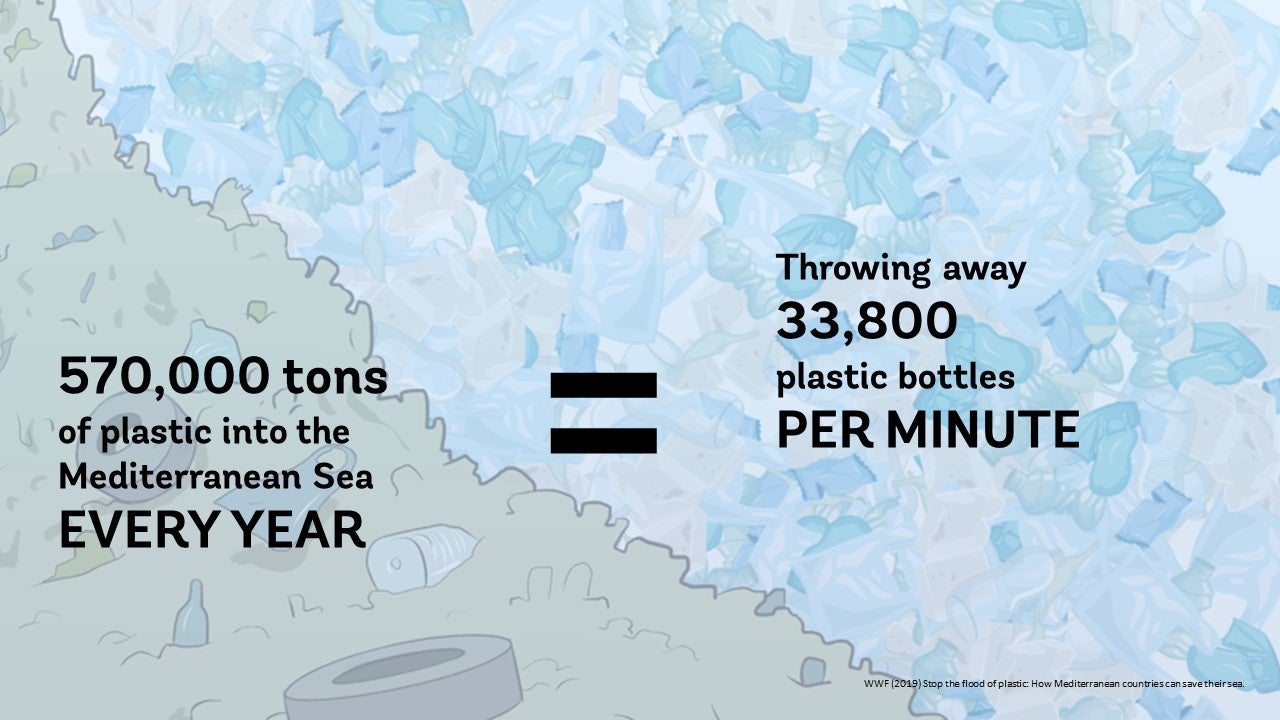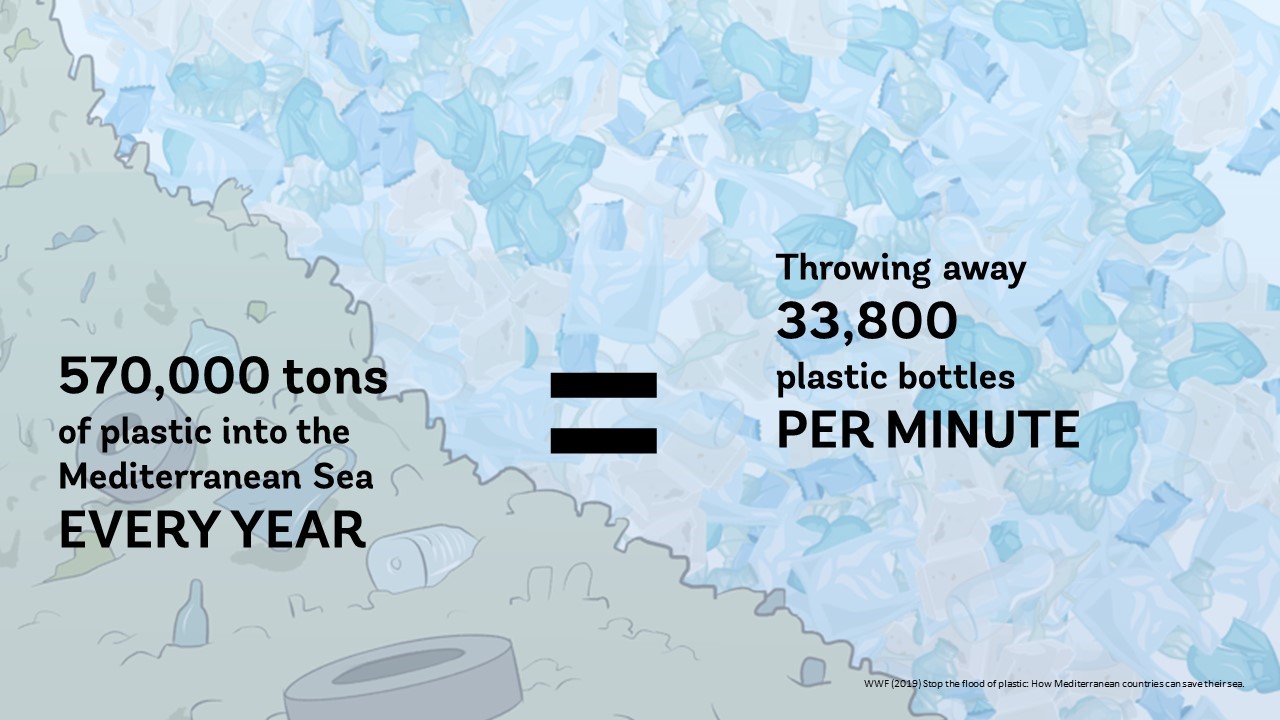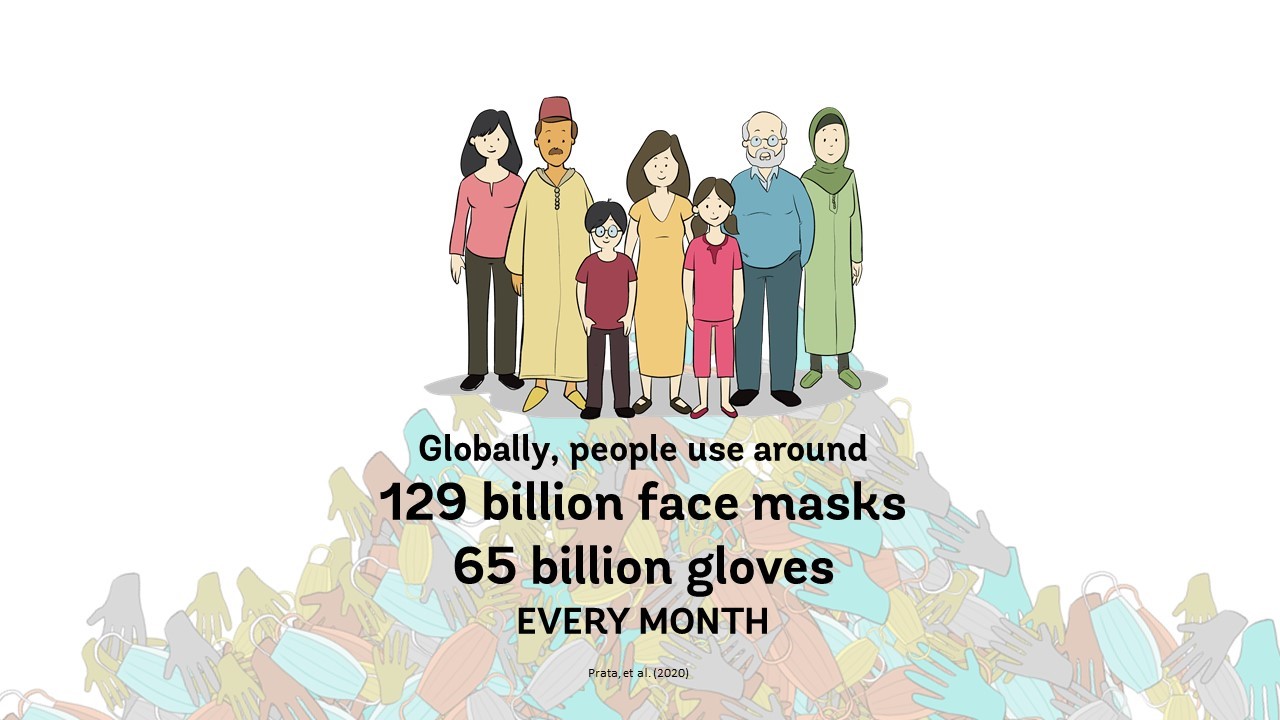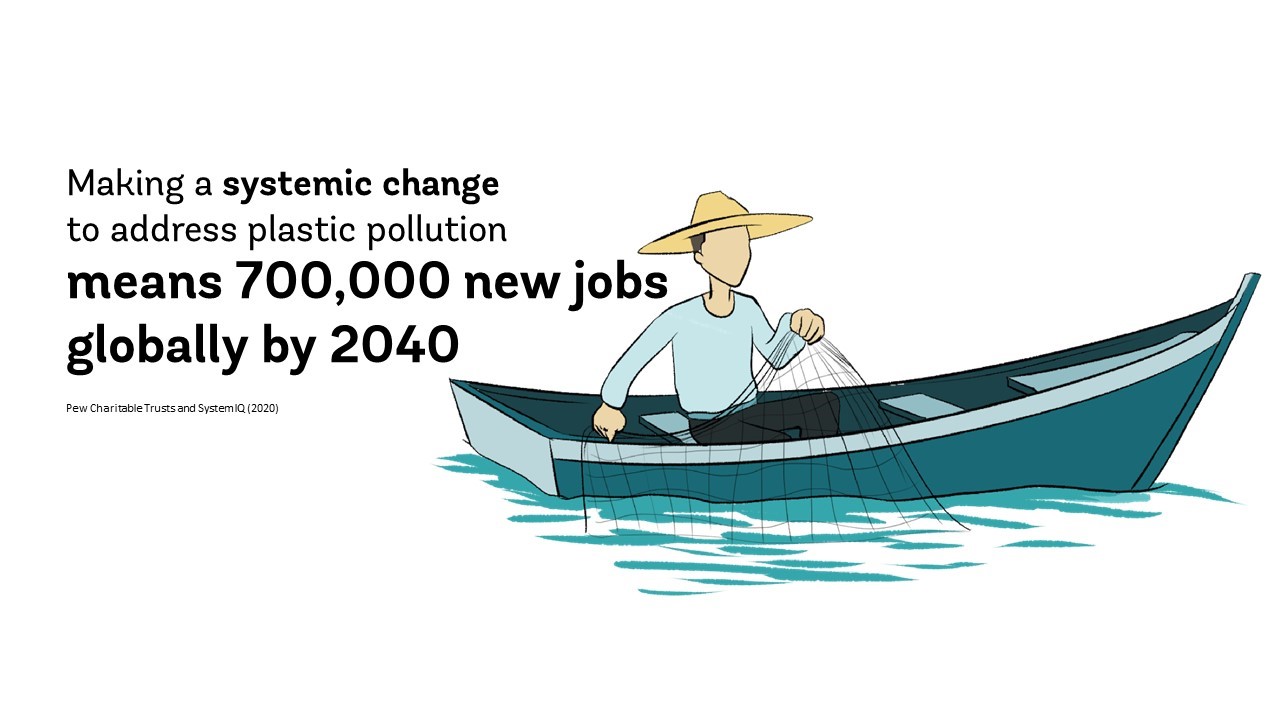 570,000 tons of plastic are thrown into the Mediterranean every year. Photo credit: World Bank
570,000 tons of plastic are thrown into the Mediterranean every year. Photo credit: World Bank
Every year, about 570,000 tons of plastic is thrown away into the Mediterranean Sea — the equivalent of 33,800 plastic bottles a minute. The effect this has on marine ecosystems and marine industries — such as tourism and fisheries — causes an estimated US$770 million in economic losses to Mediterranean countries annually, according to the World Wildlife Fund (WWF), which has investigated the damage.

Infographic 1: Stop the Flood of Plastic. How Mediterranean countries can save their sea. WWF, 2019.
The pandemic, with its need for disposal masks and plastic-based protective gear, has only made the prospect of marine plastic worse. Every month, according to a paper published by the American Chemical Society, people around the world use about 129 billion face masks and 65 billion gloves. Without urgent action, marine litter will continue to increase.

Infographic 2: COVID-19 Pandemic Repercussions on the Use and Management of Plastics. Prata, et al., 2020.
Nonetheless, COVID-19 has not stopped countries from addressing marine litter. Rather, the main issue has been MENA governments carrying out different marine waste policies and making different investments. Morocco is developing a national strategy, Coastlines without Plastic; Tunisia is identifying marine plastic pollution hotspots. Egypt, Palestine, and Lebanon are also developing programs and activities to fight marine plastic pollution, often with support from the World Bank.
Tackling marine plastic pollution is not only good for the environment but for society. Systemic change to stop plastic pollution could mean 700,000 new jobs created globally by 2040. Jesko Hentschel, the World Bank’s Country Director for the Maghreb and Malta describes addressing marine plastic pollution as “good economics.” Transitioning to a more circular economy helps reduce greenhouse gas emissions and improves working conditions for waste pickers—the people who make a living on the fringes of the informal economy by sorting garbage, and whose labor plays an important role in recycling the world’s plastic.

Infographic 3: Breaking the Plastic Wave. Pew Charitable Trusts and SystemIQ. 2020.
Marine plastic is an environmental challenge with unusually strong transboundary implications. “Because plastic moves across oceans, no single country can address this type of pollution on its own,” says Ayat Soliman, the Bank’s Regional Director for Sustainable Development for the MENA region. “That’s why the Bank is keen to support regional coordination as an approach to stop it.”
Morocco’s long coastline from the Mediterranean to the Atlantic Ocean means the country has its work cut out when it comes to dealing with plastic pollution in its territorial waters and on its shores. Sharing best practices, and finding innovative solutions to limit it, could accelerate its efforts to keep its coastlines and marine ecosystems plastic-free. Mohammed Benyahia, Secretary General of Morocco’s Department of Environment, sees this as critical to livelihoods and economies at all levels — regional, national, and local. His department has been working with the support of the multi-donor trust fund, PROBLUE, to foster cooperation with other countries in MENA and on the African continent to tackle it.
To this end, a virtual event held in March 2021 pulled together participants from Morocco, Senegal, Tunisia, Côte d’Ivoire, Egypt, Lebanon, Canada, the European Commission and other multinational bodies to focus on marine pollution. All agreed on the urgent need to address it through these measures:
-
New policy incentives and investment plans can be incorporated into recovery plan to reduce wasteful use of plastics, convert plastic waste into valuable resources and to build a greener and more inclusive economic recovery. Morocco and Côte d’Ivoire have mobilized stakeholders to reduce plastic pollution in an integrated and participative manner. Senegal has adopted legal restrictions on some plastic products, put in place extended producer responsibility schemes, and used other financial and fiscal measures to discourage the use of plastic. Tunisia has been working to optimize the impact of a 1996 law introducing ECOLEF, where producers are made financially responsible for managing packaging waste.
-
Information sharing and exchange of good practices help upscale solutions. Setting global targets and enforcing international commitment to them helps address plastic pollution at different levels, from local to global. The EC, Barcelona and Abidjan Conventions provide regional frameworks through which legislation can be harmonized and common approaches developed to tackle marine plastic pollution. Regional cooperation creates synergies and plugs gaps, for example on under-covered issues, such as microplastics. For success, the private and public sectors need to coordinate.
-
Everyone in the plastic value chain needs to work together toward the transition to a circular economy. While the public sector deals with policy, legislation, and capacity, the private sector brings innovative solutions, such as redesigning products. A circular economy needs a clear legal framework and economic incentives at national levels. Adopting harmonized regulatory standards, setting common definitions for all markets, and ensuring international monitoring standards are all important. In MENA, the private sector is starting to play an essential role: the Mohammed VI Foundation in Morocco, for example, will collaborate with private companies in plastic recycling to create new jobs and improve the plastic value chain. WWF is collaborating with private firms and the municipality of Tangiers to develop a local model for sorting, collecting, and recycling plastic waste, as well as raising public awareness and stimulating information exchange among stakeholders.



Join the Conversation